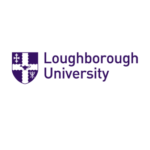Overview
Research Assistant at the Wolfson Sensory, Pain and Regeneration Centre (SPaRC) – Strand, London, WC2R 2LS
About us
This role is based within the Wolfson Sensory, Pain and Regeneration Centre (SPaRC), part of the Department of Neuroimaging at the Institute of Psychiatry, Psychology & Neuroscience (IoPPN), King’s College London.
The SPaRC and King’s IoPPN are a world-leading center for mental health and neuroscience research, providing an outstanding environment for collaborative, translational research at the interface of clinical neurology, psychiatry, and basic neuroscience.
About the role
This Research Assistant post is an integral part of an MRC Clinician Scientist Fellowship investigating the neural mechanisms of Visual Snow Syndrome (VSS) using neurophysiology and ultra-high-field 7 Tesla neuroimaging. The purpose of the role is to support the successful execution of this complex, multimodal study by contributing technical expertise in data acquisition, analysis, and pipeline development, ensuring methodological rigor and timely delivery of research outputs.
The ideal candidate will have experience with EEG and TMS-EEG data acquisition and analysis, as well as familiarity with high-field MRI workflows. Proficiency with use of established EEG analysis toolkits (e.g. Matlab, FieldTrip and EEGLAB). A postgraduate qualification in neuroscience, ideally with exposure to neurophysiology studies, will be highly valued.
The project requires end-to-end knowledge of TMS-EEG data pipelines—from data acquisition and artifact correction to time–frequency and connectivity analyses—as well as practical skills in managing and analysing large, multimodal datasets. Experience with neuroimaging tools (e.g., FSL, AFNI, or SPM) and working with ultra-high field (7T) data is desirable.
Given the complexity of the research protocol and the integration of multiple modalities, we are seeking someone who can work both independently and collaboratively, with demonstrated skills in rigorous data handling, technical troubleshooting, and scientific communication. Familiarity with the hardware and software systems used in our lab—including TMS-compatible EEG systems and MRI protocols—will allow for minimal ramp-up time and facilitate a seamless contribution to ongoing data collection and analysis.
The postholder will play a key role in implementing and maintaining a bespoke TMS-EEG and neuroimaging pipeline tailored to the study’s objectives. They will be responsible for managing and analysing large-scale EEG, TMS-EEG, and 7T MRI datasets, drawing on their experience with signal processing, neuroimaging tools, and programming. The role also involves overseeing data quality, coordinating inputs from collaborators, and integrating protocol refinements into the analysis workflow. A strong understanding of electrophysiological and neuroimaging techniques is essential, and prior experience with relevant toolboxes such as FieldTrip and EEGLab is highly desirable.
In addition to technical tasks, the RA will contribute to the smooth running of the research program through active collaboration with colleagues and external partners. They will be expected to communicate effectively with the wider team, including delivering training in analysis protocols and providing regular progress updates to the principal investigator. The role also includes supporting the setting up of the project and obtaining regulatory approvals for the study.
This is an opportunity to contribute to a high-impact, mechanistic study at the intersection of systems neuroscience and clinical neurology, using state-of-the-art neurotechnologies to advance understanding of a poorly understood but disabling condition.
This is a full time post (35 Hours per week), and you will be offered a five-year fixed-term contract until 30/10/2030.
Research staff at King’s are entitled to at least 10 days per year (pro-rata) for professional development. This entitlement, from the Concordat to Support the Career Development of Researchers, applies to Postdocs, Research Assistants, Research and Teaching Technicians, Teaching Fellows and AEP equivalent up to and including grade 7. Visit the Centre for Research Staff Development for more information.
About you
To be successful in this role, we are looking for candidates to have the following skills and experience:
Essential criteria
- Experience in TMS/EEG data collection
- Experience in TMS/EEG analysis
- Experience in TMS/EEG preprocessing
- MSc in neuroscience/clinical neuroscience
- Ability to work in a team
- Excellent knowledge of written and spoken English
- Experience in resting-state EEG data collection and analysis
- Experience in evoked potentials data collection and analysis
Desirable criteria
- Knowledge of visual snow syndrome and migraine
- Experience with protocol writing and set-up, and obtaining regulatory approvals
- Experience with analysis software (Matlab)
- Experience with neuroimaging preprocessing
- Experience with scientific writing
Downloading a copy of our Job Description
Full details of the role and the skills, knowledge and experience required can be found in the Job Description document, provided at the bottom of the next page after you click “Apply Now”. This document will provide information of what criteria will be assessed at each stage of the recruitment process.
















